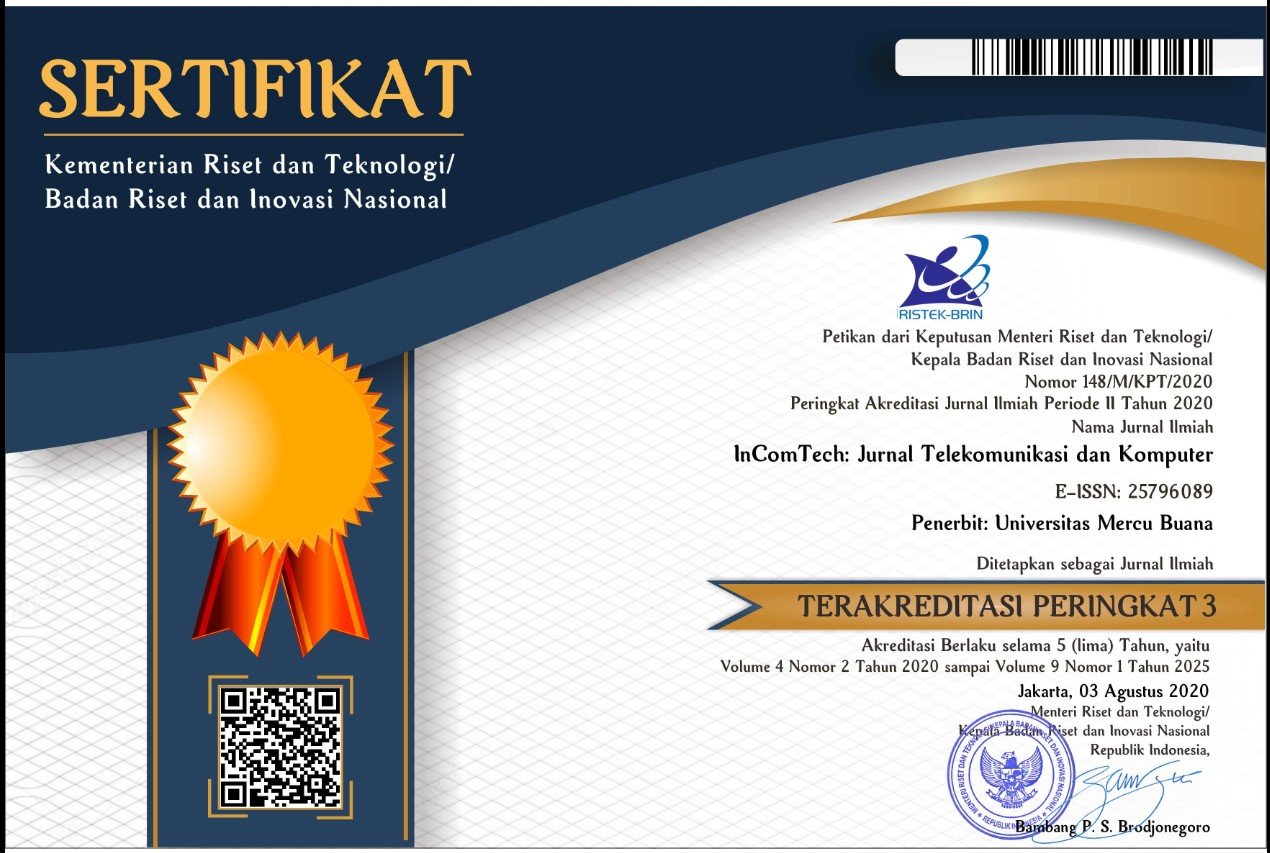MSMEs Business Continuity Competitiveness during Post-Pandemic from the Lens of Disaster Recovery Business Planning Theory Approach
Abstract
2020 is the most difficult year in the start-up world due to the Covid-19 pandemic existed since the end of 2019 which forced every effort to turn the direction of strategy. Not a few also experience a crisis in the time of pandemic, so some companies have laid off their employees to reduce the burden of financing. The business sectors most affected are the commercial aviation, travel, oil and gas, automotive and banking sectors. But the business of the MSME sector is also affected due to the availability of raw materials and social restriction regulations. By applying the Action Research methodology from the literature study of post-pandemic phenomena, the study used a compilation data source to support this writing literature research. The focus of this writing is the MSME sector businesses that are still operating in the post-Covid-19 pandemic. Almost all business people in the MSME sector experienced a very drastic decrease in sales turnover, experiencing various marketing and sales constraints, as well as product distribution. Some business actors in the MSME sector are trying to maintain their business or business in the middle until after the Covid-19 pandemic by following government rules and health and security protocols with various efforts observed (observe), identified (to orient), make decisions (decide), and re-activity (to act) by continuously observing, identifying, making decisions, and acting continuously in one unconstrained cycle time. This study employs and implements an OODA loop or cycle. The concept of OODA loop is the concept of repeated analysis to determine the decision of a problem. OODA stands for Observe, Orient (problem identification), Decide (quick decision making), and Act (immediate action). The term cycle or loop comes from this concept because every process repeats until decisions taken are effective and able to have a significant impact in dealing with problems. For this reason, it is recommended that every business actor can try this method as a solution to the challenge of overcoming the economic crisis caused by COVID-19 through the OODA loop.
Keywords
Full Text:
PDFReferences
Bank Indonesia (2020). National Economic Growth Impacted by COVID-19 in Q2/2020. Retrieved from https://www.bi.go.id/en/iru/government-press- release/Pages/National-Economic-Growth-Impacted-by-COVID-19-in-Q2-2020. aspx#:~:text=Consequently%2C%20Indonesia’s%20economy%20contracted% 205.32,yoy)%20in%20Q1%2F2020.&text=All%20economic%20sectors% 20experienced%20a,Services%3B%20as%20well%20as%20Agriculture.
Botha, J., & Von Solms, R. (2004). A cyclic approach to business continuity planning. Information Management and Computer Security, 12(4), 328–337. https://doi.org/10.1108/09685220410553541
Cillers, W. J. (2000). An experiential learning process for the advancement of previously disadvantaged employees in an industrial context. Unpublished Doctoral Dissertation, 31–66.
Cohen, L., Manion, L. & Morrison K. (2000). Research methods in education. (5th edition), London: Routledgefaomer Press.
Fabeil, N. F., Pazim, K. H., & Langgat, J. (2020). The Impact of Covid-19 Pandemic Crisis on Micro-Enterprises: Entrepreneurs’ Perspective on Business Continuity and Recovery Strategy. Journal of Economics and Business, 3(2). https://doi.org/10.31014/aior.1992.03.02.241
Indonesia, U. (2008). Jakarta: Undang-undang (UU) No. 20. (Usaha Mikro, Kecil dan Menengah).
Karim, A. J. (2011). Business Disaster Preparedness: An Empirical Study for measuring the Factors of Business Continuity to face Business Disaster. International Journal for Business and Social Science, 18(18), 183–192. http://ijbssnet.com/journals/Vol_2_No_18_October_2011/23.pdf%5Cnhttp://search.ebscohost.com/login.aspx?direct=true&db=bth&AN=66726542&site=ehost-live
Kemmis, S. & Mc Taggart, R. (1988). The action research planner. (3th edition). Victoria: Deakin University Press.
Lomax, L. (1989). The management of change. Great Britain: Short run press Ltd. Lomax,
Mills, G. E. (2003). Action research: A guide for the teacher researcher. Upper Saddle River, NJ: Merrill/Prentice Hall.
Noor, M. Soetjipto. (2020). Ketahanan UMKM Jawa Timur.
Pakpahan, A. K. (2020). Menyelamatkan Penjualan Ritel di Tengah Pandemi Covid-19. Covid-19 Dan Implikasi Bagi Usaha Mikro, Kecil, Dan Menengah, 1(April), 5. https://www.google.com/url?sa=t&source=web&rct=j&url=http://journal.unpar.ac.id/index.php/JurnalIlmiahHubunganInternasiona/article/view/3870&ved=2ahUKEwjP6MOZjZnpAhXFXCsKHRq9DFQQFjAAegQIARAB&usg=AOvVaw09WJeFinTVtA0eWEKaRwYS&cshid=1588557574299
Prameka, A. S., Sudarmiatin, Prabowo, S. H. W. and Wiraguna, R. T. (2020). The Internal-External Dynamics Factors Influence on Indonesian Entrepreneurs Performance during COVID-19 Crisis. Universitas Negeri Malang.
Donato, R. (2003). <0308Donato.Pdf>. December.
Seyyed Amiri, N., Shirkavand, S., Chalak, M., & Rezaeei, N. (2017). Competitive intelligence and developing sustainable competitive advantage. AD-Minister, June, 173–194. https://doi.org/10.17230/ad-minister.30.9
Sibarani, S. (2020). Starting Business Back After Pandemic Covid-19 in Legal Views in Indonesia. 478(Ticash), 332–338. https://doi.org/10.2991/assehr.k.201209.049
Strickland, D., & Schlesinger, L. (1969). “Lurking” as a Research Method. Human Organization, 28(3), 248–250. https://doi.org/10.17730/humo.28.3.t056036u16021201
Whitman, M. E., & Mattord, H. J. (2011). Principles of Information Security Fourth Edition. In Learning.
Wunnava, S. (2011). Application of protection motivation theory to study the factors that influence disaster recovery planning: An empirical investigation. ProQuest Dissertations and Theses, 113.
DOI: http://dx.doi.org/10.22441/jdm.v5i2.14882
Refbacks
- There are currently no refbacks.
Copyright (c) 2022 Jurnal Doktor Manajemen (JDM)

This work is licensed under a Creative Commons Attribution-NonCommercial 4.0 International License.
Jurnal Doktor Manajemen (JDM)
Program Doktor Manajemen - Fakultas Ekonomi dan Bisnis
Universitas Mercu Buana
Jl. Raya Meruya Selatan, Kembangan, Jakarta 11650
Tlp./Fax: +62215871335

This work is licensed under a Creative Commons Attribution-NonCommercial 4.0 International License.
View My Stats








